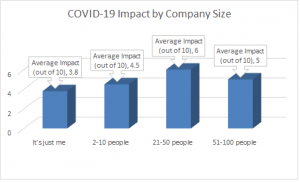
Understanding the normal balance of an account is essential for maintaining accurate financial records and preparing financial statements. It helps identify errors in the accounting system and ensures that financial transactions are recorded correctly. Knowing normal balance for accounts payable the normal balance of an account helps you understand how to increase and decrease accounts. Next, we’ll move on to adjusting these accounts with journal entries. As the liabilities, accounts payable normal balance will stay on the credit side. On the other hand, the asset accounts such as accounts receivable will have a normal balance as debit.
Types of Accounts in Accounting (Quick Recap)
For the past 52 years, Harold Averkamp (CPA, MBA) hasworked as an accounting supervisor, manager, consultant, university instructor, and innovator in teaching accounting online. He is the sole author of all the materials on AccountingCoach.com. For the past 52 years, Harold Averkamp (CPA, MBA) has worked as an accounting supervisor, manager, consultant, university instructor, and innovator in teaching accounting online. For example, if a restaurant owes money to a food or beverage company, those items are part of the inventory, and thus part of its trade payables. Chartered accountant Michael Brown is the founder and CEO of Double Entry Bookkeeping. He has worked as an accountant and consultant for more than 25 years and has built financial models for all types of industries.

Examples of Debits and Credits in a Sole Proprietorship
A contra revenue account that reports the discounts allowed by the seller if the customer pays the amount owed within a specified time period. For example, terms of “1/10, n/30” indicates that the buyer can deduct 1% of the amount owed if the customer pays the amount owed within 10 days. As a contra revenue account, sales discount will have a debit balance and is subtracted from sales (along with sales returns and allowances) to arrive at net sales. As noted earlier, expenses are almost always debited, so we debit Wages Expense, increasing its account balance.

Visualizing Debits and Credits with T-Accounts

As we wrap up our chat on accounting, it’s key to remember that knowing about normal balances is crucial. Liabilities, on the other hand, rise with credits and fall with debits. It impacts a company’s operational costs, profitability, and bottom line. When a company spends money, it debits an expense account, showing an increase in costs. Making money means crediting a revenue account, raising its value.

- Instead, it signifies whether an increase in a particular account is recorded as a debit or a credit.
- The expenses are recorded as a credit on the normal balance.
- Prepaying insurance, an asset, is debited because it promises future benefits.
- This shapes the financial story of both personal and business finances.
- This considers things like the economy, recovering from big events, and planning finances.
- The normal balance shows debit in the accounts payable when the left side is positive.
For accounts receivables that are on the fixed assets assets side, the normal balance is usually debit. But, for the accounts payable which are on the liabilities side, the normal balance is credit. They show changes in accounts within the bookkeeping system. Debits increase asset and expense accounts but decrease liabilities, equity, and revenue. Following best practices in accounting is crucial for accurate financial records.
- Accrued expenses are payments that a company is obligated to make in the future for goods and services that were already delivered.
- Upon receiving the debit note, the seller issues a credit note (also known as credit memo) to the buyer, informing him that his account has been credited.
- Normal balance shows how transactions flow through different accounts.
- Liabilities are what a company owes, like Accounts Payable and Notes Payable, and rise with credits.
- For example, if management wants to increase cash reserves for a certain period, they can extend the time the business takes to pay all outstanding accounts in AP.
Accrued Expenses vs. Accounts Payable: An Overview
Normal balances ensure financial records are accurate and reliable. They show bookkeepers and accountants where to record transactions. Keeping transactions consistent is crucial for trustworthy financial reporting and analysis.

Deje su comentario
Debe iniciar sesión para escribir un comentario.